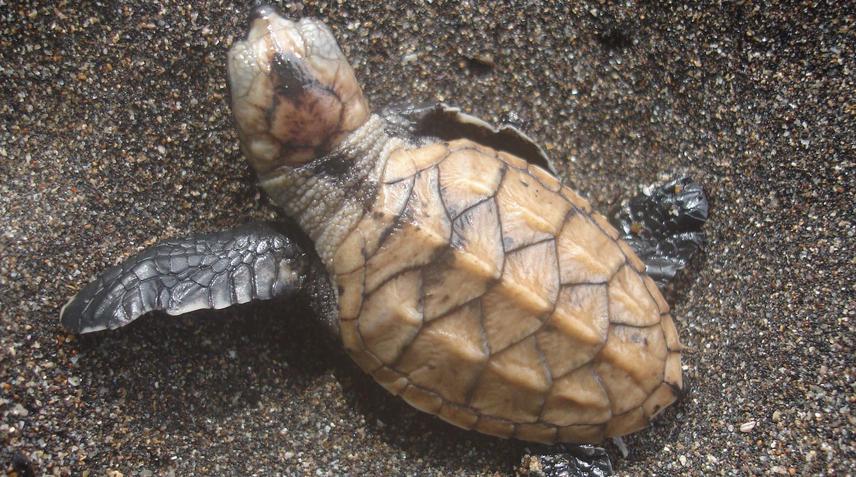Michael Joseph Liles
Other projects
Our project aims to examine the social and biological impacts of connecting payments for hawksbill nest protection in hatcheries to hatching success. Concurrently, we aim to facilitate the formation of a local hawksbill conservation network to build local capacity and cultivate values for long-term sustainable resource use.

Hawksbill Hatchling.
Hawksbill turtles (Eretmochelys imbricata) in the eastern Pacific Ocean are likely the rarest species of sea turtles in the region, with only a few hundred nests deposited annually along more than 15,000 kilometres of coastline and are imminently threatened with extirpation. Because more than 90% of all nesting occurs along the coasts of El Salvador and Nicaragua, conservation efforts directed at hawksbills along the Salvadoran coast have been identified as a top priority. However, conservation gains have yet to be maximized as egg consumption and ineffective nest protection strategies continue to threaten hawksbill survival. Since at least 1975, high population density and acute poverty in coastal areas have evoked the use of hatcheries as the only method of nest protection on public beaches in El Salvador. By purchasing eggs from local egg collectors, hatcheries provide an alternate economic incentive to sale for consumption and thus have gained acceptance among coastal communities; eggs not purchased by hatcheries are sold for consumption. However, economic incentives are tied to eggs not hatchling production and the role of local communities in decision-making is often minimal, increasing the potential for negative biological consequences and reduced long-term conservation efficacy.
This project will pilot the use of nest conservation payments tied to hatching success in hatcheries along the Salvadoran coast and examine associated biological and social impacts. By rewarding high hatching success, we believe that local egg collectors will increase care during excavation, transport, and reburial of eggs in hatcheries. Furthermore, we hope that attaching value to hatchling production will heighten egg collectors’ interest in the developmental process and fates of their nests. Central to this work will be the formation of a local hawksbill conservation network composed of members of coastal communities and local NGOs to cultivate values for long-term sustainable resource use through grassroots capacity building. We will employ a participatory approach to fully engage members of coastal communities in all aspects of project activities and to acknowledge them as fundamental members of research and conservation efforts, whose legitimate involvement is critical to the sustainability of desired long-term outcomes. Additionally, by partnering with coastal communities we will empower egg collectors and fishers to reduce local threats to hawksbill turtles, while concurrently enhancing scientific investigations via the integration of local knowledge. The methods and activities of this pilot project will serve as a transferable model for marine turtle conservation at other public beaches in El Salvador.